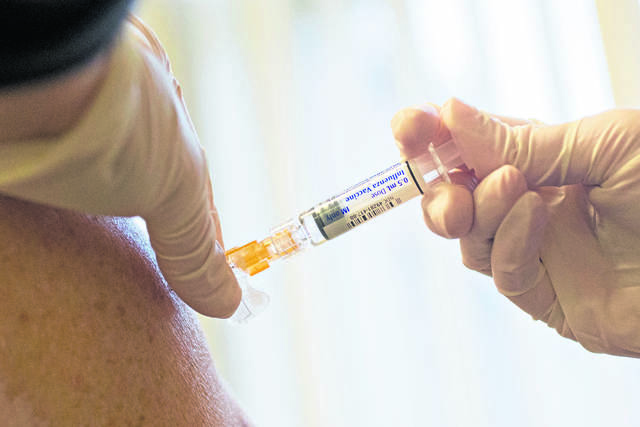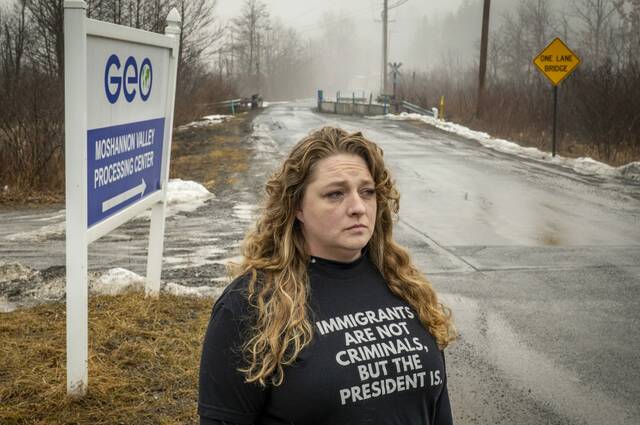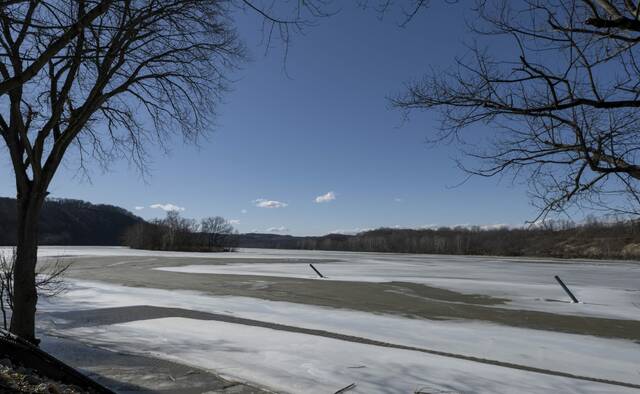When is the best time to get the flu vaccine? Most medical experts say as soon as possible — and certainly by the end of October.
“With the potential for flu and covid-19 co-occurring, we need everyone to take steps to prevent overrunning our health systems,” said state Department of Health spokesman Nate Wardle. “It’s great to see employers supporting employees to get their flu shots ahead of the ‘flu season’ to keep their staffs safe and healthy.”
A lot of employers are scheduling flu shots for September. But medical experts are saying the timing depends on your age and health status, and some people should wait until October.
“The younger you are, the better your antibody response to the flu vaccination. It seems to last a little longer. The older you are, the briefer the time that your immune system responds,” said Dr. Donald Middleton, vice president for family medicine at UPMC St. Margaret.
For that reason, Middleton said that people who are 65 or older and those with compromised immune systems do better if they’re vaccinated from mid- to late October rather than September.
“That’s a difficult thing for employers to understand because they have younger people, too, who probably do fine from being vaccinated in September,” Middleton said. “UPMC as an entity has decided that we will start vaccinating in mid-September but not before that time. Protection from the flu vaccine will wear off toward the end of the flu season.”
For its part, Excela Health said it will begin employee and patient flu vaccinations within the first week of October.
“We anticipate respiratory illness to begin to peak in early fall,” said Kathleen Rosatti, director of Clinical Outcomes Management for Excela Health, as people in Southwestern Pennsylvania begin to spend more time indoors than outdoors. “It would be ideal to mitigate respiratory illnesses to the extent possible.”
Many people at higher risk for flu also seem to be at higher risk for covid-19, according to the Centers for Disease Control and Prevention.
“It is, of course, critically important to receive the flu vaccine this year more than ever in light of covid-19,” Rosatti said. “We need to do everything that we can in order to not overwhelm health care resources.”
She added that experts don’t have a sense yet of what strains of flu will be prevalent locally.
But there is the possibility there may be fewer cases of flu this season because, in the midst of the pandemic, people are being more careful about covering their faces, social distancing and washing their hands.
“This year, flu activity has been very low. I would think we’re likely to see another year where H1N1 is bad, but I wouldn’t bet my car on that,” said Middleton, the family medicine doctor at UPMC. “If we mirror what’s happening in Australia and we continue to wear masks and socially distance, we may actually see fewer cases of flu than we normally would.”
Dr. Amy Crawford-Faucher, vice chair of Allegheny Health Network’s Primary Care Institute, said predicting how bad the flu season will be amounts to taking an educated guess.
“The flu vaccine strains that we use for the U.S. are based on epidemiological review of what hit other parts of the world,” Crawford-Faucher said. “They did update all of the strains for this year, but it’s a little bit of a crapshoot to see how well it matches with what hits us in terms of the actual flu. We suspect there will be some blunting of it with social distancing, but it’s really hard to predict by how much.”








